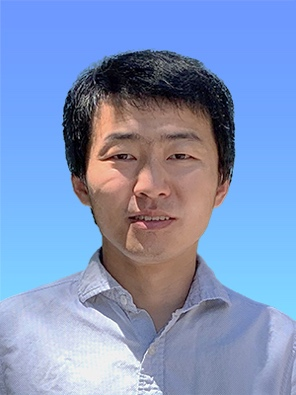 | Han HanE-mail: hanhan@whu.edu.cn
Website: https://wbm.whu.edu.cn/info/1350/40642.htm
|
Biography
Dr. Han Han is a professor in the Department of Pathophysiology at TaiKang Medical School, Wuhan University. He obtained his B.S. degree in Biotechnology from Ningxia University in 2010 and went on to earn his Ph.D. degree in Cell Biology from Wuhan University in 2015. After completing his doctoral studies, Dr. Han pursued his postdoctoral training from UT MD Anderson Cancer Center (UTMDACC) and University of California, Irvine (UCI), in the United States. In 2020, he took a position as an Associate Specialist at UCI. In 2023, Dr. Han returned to China, assumed the role of Principal Investigator at the TaiKang Center for Life and Medical Sciences, Wuhan University. Dr. Han's research focuses on investigating the roles of phospholipids and trace essential metal elements in physiological and pathological conditions, with a specific emphasis on their implications in cancer development.
Academic Positions
2023 - present Professor/PI, TaiKang Medical School/ TaiKang Center for Life and Medical Sciences, Wuhan University, China
2020 - 2023 Associate Specialist, University of California, Irvine, United States
Education and Training
2016 - 2020 Postdoctoral Fellow, University of California, Irvine, United States
2015 - 2016 Postdoctoral Fellow, The University of Texas MD Anderson Cancer Center, United States
2010 - 2015 Ph.D. in Cell Biology, Wuhan University, China
2006 - 2010 B.S. in Biotechnology, Ningxia University, China
Research
Maintaining cell and tissue homeostasis is crucial for normal physiological functioning, and our research dives deep into unraveling these intricate processes. By employing state-of-the-art techniques such as genomics, proteomics, and multi-omics methods, alongside cutting-edge molecular and biochemical technologies, our group elucidated that
(1) the phosphatidic acid metabolism pathway participates in and regulates the tumor suppressor function of the Hippo pathway (Molecular Cell, 2018; Molecular and Cellular Proteomics, 2022);
(2) the Hippo pathway maintains intracellular heavy metal homeostasis by regulating the activity of Metal-regulatory transcription factor 1 (MTF1) (Nature Cell Biology, 2022);
(3) a series of novel Hippo pathway regulators influence its pathway activity across different cancers, contributing to tumorigenesis and cancer development (EMBO J, 2017&2020; Oncogene, 2017&2018; Cell Reports, 2017).
Our group is dedicated to furthering our understanding of key intracellular signaling pathways and exploring the molecular basis of cell homeostasis in health and diseases. Specific research directions include:
(1) phospholipid metabolism and its regulatory mechanisms;
(2) the maintenance of trace heavy metal homeostasis and its implications in health and diseases;
(3) undertaking the screening and identification of pathogenic gene mutations for personalized treatment.
Representative Publications
1.Han H, Wang W. A tale of two Hippo pathway modules.EMBO J.2023 Jun 1;42(11):e113970.
2.Han H, Nakaoka HJ, Hofmann L, Zhou JJ, Yu C, et al., The Hippo pathway kinases LATS1 and LATS2 attenuate cellular responses to heavy metals through phosphorylating MTF1.Nat Cell Biol.2022 Jan 13;24:74–87.
3.Chen Y*, Han H*, Seo G, Vargas RE, Yang B, et al., Systematic analysis of the Hippo pathway organization and oncogenic alteration in evolution.Sci Rep. 2020 Feb 21;10(1):3173. (*co-first authors)
4.Vargas RE*, Duong VT*, Han H*, Ta AP, Chen Y, et al., Elucidation of WW domain ligand binding specificities in the Hippo pathway reveals STXBP4 as YAP inhibitor.EMBO J. 2020 Jan 2;39(1):e102406. (*co-first authors)
5.Han H, Qi R, Zhou JJ, Ta AP, Yang B, et al., Regulation of the Hippo pathway by phosphatidic acid-mediated lipid-protein interaction.Mol Cell. 2018 Oct 18;72(2):328-340.e8.
6.Han H, Yang B, Nakaoka HJ, Yang J, Zhao Y, et al., Hippo signaling dysfunction induces cancer cell addiction to YAP.Oncogene. 2018 Aug 1.
7.Zheng X*, Han H*, Liu G*, Ma Y, Pan R, et al., LncRNA wires up Hippo and hedgehog signaling to reprogram glucose metabolism. EMBO J. 2017 Sep 28. pii: e201797609. (*co-first authors)
8.Han H, Yang B, Wang W. Angiomotin-like 2 interacts with and negatively regulates AKT. Oncogene. 2017 Aug 10;36(32):4662-4669.
9. Li X*, Han H*, Zhou MT*, Yang B, Ta AP, et al., Proteomic analysis of the human tankyrase protein interaction network reveals its role in pexophagy. Cell Rep. 2017 Jul 18;20(3):737-749. (*co-first authors)
10.Han H, Li W, Shen H, Zhang J, Zhu Y, et al., microRNA-129-5p, a c-Myc negative target, affects hepatocellular carcinoma progression by blocking the Warburg effect.J Mol Cell Biol. 2016 Mar 21;
11.Han H, Sun D, Li W, Shen H, Zhu Y, et al., A c-Myc-MicroRNA functional feedback loop affects hepatocarcinogenesis. Hepatology. 2013 Jun;57(6):2378-89.
Complete list of published work:
https://www.ncbi.nlm.nih.gov/myncbi/1teutjgq9dwQu/bibliography/public/